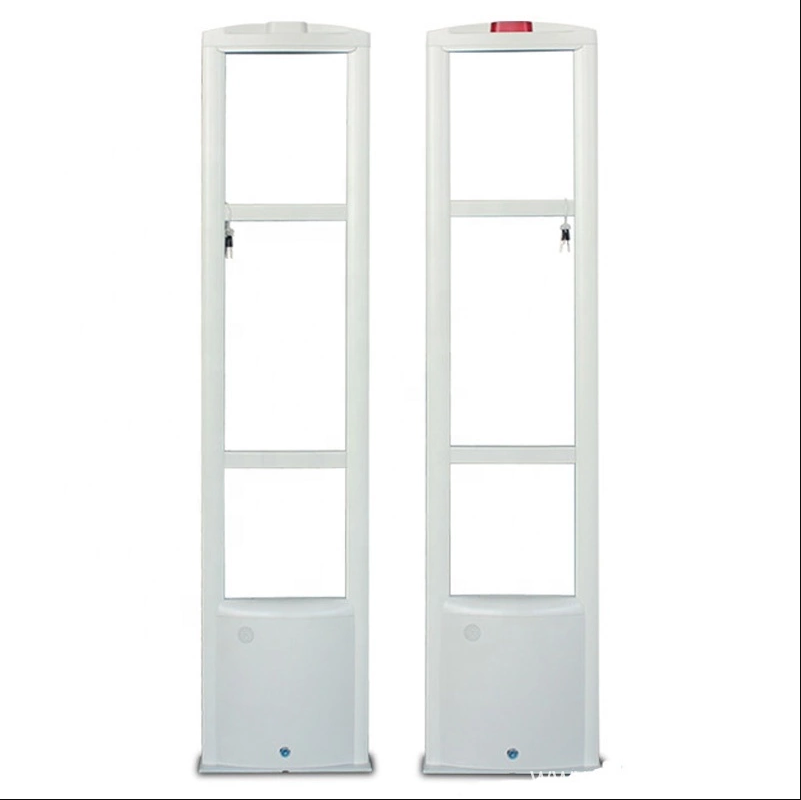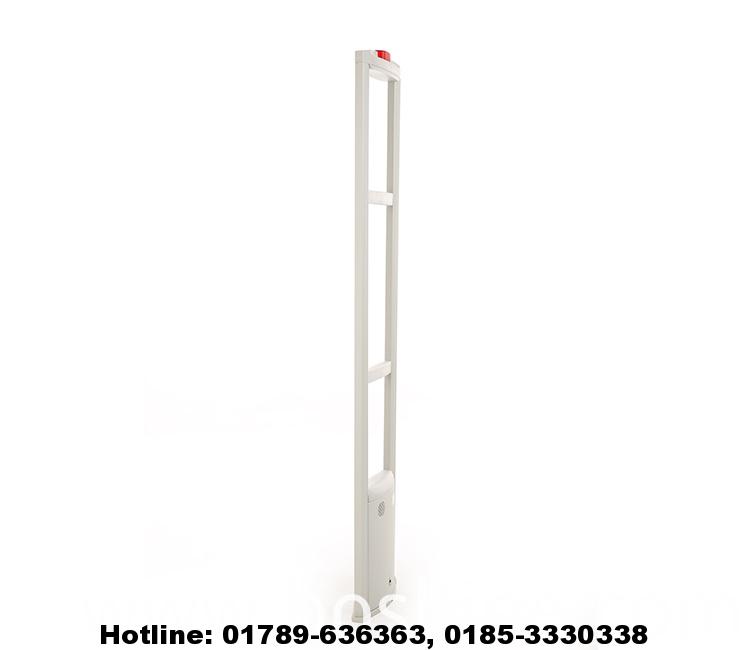Dahua XVR5116HS-X is the 16 Channel Penta-brid 1080P Compact 1U Digital Video Recorder.
XVR-5116HS-X in bangladesh
Dahua XVR5116HS-X provides these features:
> H.265+/H.265 dual-stream video compression
> Supports HDCVI/AHD/TVI/CVBS/IP video inputs
> Max 24 channels IP camera inputs, each channel up to 6MP; Max 96 Mbps Incoming Bandwidth
> Smart Search and Intelligent Video System৳ 12,000.00DH-Dahua XVR5108/16HS-X 8/16 Channel Penta-brid 1080P Compact 1U Digital Video Recorder
XVR-5108HS-X in bangladesh
· H.265+/H.265 dual-stream video compression
· Supports HDCVI/AHD/TVI/CVBS/IP video inputs
· Max 12/24 channels IP camera inputs, each channel up to
6MP; Max 48/96Mbps Incoming Bandwidth
· Smart Search and Intelligent Video System৳ 8,000.00Dahua XVR5104HS-X 4 Channel Penta-brid 1080P Compact 1U Digital Video Recorder
XVR-5104HS-X in bangladeshh
> H.265+/H.265 dual-stream video compression
> Supports HDCVI/AHD/TVI/CVBS/IP video inputs
> Max 6 channels IP camera inputs, each channel up to 6MP; Max 24Mbps Incoming BandwidthCall for PriceDHI- XVR4204/08/16A 4/8/16 Channel Penta-brid 720P 1U Digital Video Recorder
XVR4204AN in bangladesh
·Embedded processor
·Support HDCVI/ AHD/TVI/CVBS/IP video inputs
·Max 5/10/18 channels IP camera inputs
·Long transmission distance over coax cable
·Support 1 SATA HDD, up to 6TB৳ 7,300.00DH-XVR1B16H 16 Channel Penta-brid 4M-N/1080P Cooper 1U Digital Video Recorder
H.265+/H.265 dual-stream video compression
· Supports HDCVI/AHD/TVI/CVBS/IP video inputs
· Max 24 channels IP camera inputs, each channel up to 6MP;
Max 96Mbps incoming bandwidth
· Long transmission distance over coax cable
· Supports 1 SATA HDD, up to 6TB
· Smart Search and Intelligent Video SystemCall for PriceDH-XVR1B04/08H 4/8 Channel Penta-brid 4M-N/1080P Cooper 1U Digital Video Recorder
XVR1B08H in bangladesh
H.265+/H.265 dual-stream video compression
· Supports HDCVI/AHD/TVI/CVBS/IP video inputs
· Max 6/12 channels IP camera inputs, each channel up to 6MP;
Max 24/48Mbps incoming bandwidth
· Long transmission distance over coax cable
· Supports 1 SATA HDD, up to 6TB
· Smart Search and Intelligent Video System৳ 7,300.00DAHUA XVR4108HS-X1 08 Channel Penta-brid Digital Video Recorder
XVR-4108HS-X1 in bangladesh
- Model: XVR4108HS-X1
- Interface: 1 HDMI ,1 VGA
- Internal HDD SATA: Up to 6TB
- Resolution: 1080P
৳ 5,700.00Dahua DH-XVR1B04/08H 4/8 Channel Penta-brid 4M-N/1080P Cooper 1U Digital Video Recorder
XVR1B04H in bd
· H.265+/H.265 dual-stream video compression
· Supports HDCVI/AHD/TVI/CVBS/IP video inputs
· Max 6/12 channels IP camera inputs, each channel up to 6MP;
Max 24/48Mbps incoming bandwidth
· Long transmission distance over coax cable
· Supports 1 SATA HDD, up to 6TB
· Smart Search and Intelligent Video SystemCall for PriceDahua DH-XVR4104HS-X1 4CH Penta-brid 1U XVR/DVR
XVR-4104HS-X1
· H.265+/H.265 dual-stream video compression
· Supports HDCVI/AHD/TVI/CVBS/IP video inputs
· Max 5 channels IP camera inputs, each channel up to 2MP;
Max 20Mbps incoming bandwidth
· Long transmission distance over coax cable
· Supports 1 SATA HDD, up to 6TB৳ 4,900.00Dahua XVR-1A04 Penta-brid 1080N/720P Cooper 1U Digital Video Recorder
Dahua XVR-1A04
H.264 video compression
Supports HDCVI/AHD/TVI/CVBS/IP video inputs
Max 5/10 channels IP camera inputs, each channel up to 2MP/5MP; Max 20/40Mbps Incoming Bandwidth
Long transmission distance over coax cable
Supports 1 SATA HDD, up to 6TB৳ 3,800.00Dahua DH-SD49225I-HC 2MP 25X STARLIGHT IR PTZ HDCVI CAMERA
DH-SD49225I-HC in bangladesh
> 1/2.8” 2Megapixel STARVIS™ CMOS
> Powerful 25x optical zoom
> Starlight technology
> 120dB true WDR, 3D DNR
> Max. 25/30fps@1080P, 25/30/50/60fps@720P
> IR distance up to 100m
> IP66৳ 22,700.00Dahua HFW1230TP | 2MP Starlight HDCVI IR Bullet Camera
HFW-1230TP
Condition: New Price: ৳ 2,900 Status: In Stock Warranty: 12 Months Call for PriceDahua HFW1230TP | 2MP Starlight HDCVI IR Bullet Camera
Call for Price
Epowsens
Established in 2005, Epowsens, a leading enterprise focuses on RF/AM soft label, RF/AM hard tag, RFID inlay/label, EAS/RFID system, etc. With over 10 years of experience, hundreds of employees and 1.2 billion pieces of annual production quantity, our products has cover a large share of the worldwide market. Our company’s amount of annual exports is 5-7 millions USD.
The core of our service is responsibility. We keep it as our culture, making our industry protects the retailers in the world.
EAS (Electronic Article Surveillance)–A security system for preventing theft in retail stores that uses disposable RF /AM label or reusable RF/AM hard tags attached to the merchandise. An alarm is triggered when walking through detection antenna gate at the store exit if a disposable tag was not deactivated or a reusable tag was not removed at the checkout counter.

epowsens Bangladesh
UHF Inlay HF Inlay RFID UHF label RFID HF Label RFID Tag
RF Label Hard Tag Bottle Tag Ink Tag Detacher Am Label Deactivtor Eas System Safer Pin Lanyard Alarm Tag

EAS anti-theft alarm security system Price in Bangladesh

Epowsens Retail eas rf alarm antenna anti-theft security systems in Uttara, Dhaka-Bangladesh

Retail eas rf alarm antenna anti-theft security systems in Uttara, Dhaka



How EAS Systems Working?
How Anti-shoplifting Devices Work? How EAS devices can detect security tags and security labels?
The most effective anti-shoplifting tools these days are tag-and-alarm systems, better known as electronic article surveillance (EAS) systems. Separately, these are good options. Used together, experts say, they’re almost unbeatable. EAS is a technology used to identify articles as they pass through a gated area in a store. This identification is used to alert someone that unauthorized removal of items is being attempted. According to the Association of Automated Identification Manufacturers, over 800,000 EAS systems have been installed worldwide, primarily in the retail arena. EAS systems are useful anywhere there is an opportunity for theft of items of any size. Using an EAS system enables the retailer to display popular items on the floor, where they can be seen, rather than putting them in locked cases or behind the counter.
New EAS technologies are being produced — not only to reduce shoplifting — but also to help increase sales, lower labor costs, speed inventory, improve stockroom logistics and, one day, to replace inventory record-keeping. But for now, we’ll stick to the role of EAS in battling shoplifting in your imaginary store!
Three types of EAS systems dominate the retail industry. In each case, an EAS tag or label is attached to an item. The tag is then deactivated, or taken from an active state where it will alarm an EAS system to an inactive state where it will not flag the alarm. If the tag is a hard, reusable tag, a detacher is used to remove it when a customer purchases the item it’s attached to. If it’s a disposable, paper tag, it can be deactivated by swiping it over a pad or with a handheld scanner that “tells” the tag it’s been authorized to leave the store. If the item has not been deactivated or detached by the clerk, when it is carried through the gates, an alarm will sound.
The use of EAS systems does not completely eliminate shoplifting. However, experts say, theft can be reduced by 60 percent or more when a reliable system is used. Even when a shoplifter manages to leave the store with a tagged item, the tag still must be removed — something that is no longer as easy as it once was. For example, some EAS tags contain special ink capsules, which will damage the stolen item when forcibly, and illegally, removed. (This type of device is known in the industry as benefit denial — we’ll discuss it more later!). Other popular EAS components today include source tagging, whereby an inexpensive label is integrated into the product or its packaging by the manufacturer.
The type of EAS system dictates how wide the exit/entrance aisle may be, and the physics of a particular EAS tag and technology determines which frequency range is used to create a surveillance area. EAS systems range from very low frequencies through the radio frequency range (see How Radio Scanners Work). These EAS systems operate on different principles, are not compatible and have specific benefits and disadvantages. (That’s why the Consumer Products Manufacturers Association, Inc. is encouraging a “tower-centric” EAS approach that can “read” multiple tag technologies rather than the “tag-centric” models that exist today.












